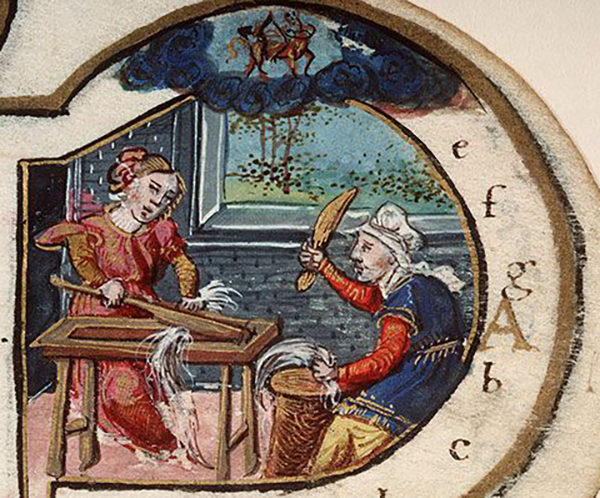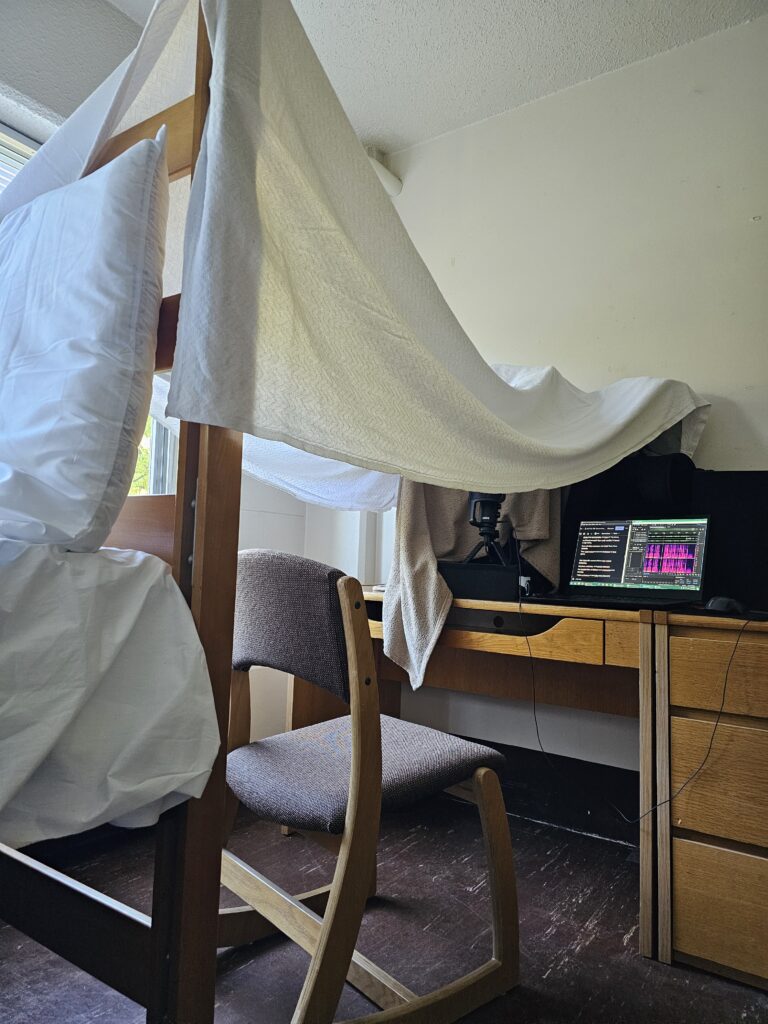- Download:
- MP3 Audio59 MB

For Mother’s Day, we look at a 15th-century tale of a plowman who thinks that — in terms of daily labor — his wife has it too easy, and how he learns otherwise.
Today’s Texts
- “Ballad of a Tyrannical Husband.” Reliquiae Antiquae: Scraps From Ancient Manuscripts, Illustrating Chiefly Early English Literature and the English Language, edited by Thomas Wright and James Orchard Halliwell, vol. 2, John Russell Smith, 1845, pp. 196-99. Google Books. Accessed 8 Oct. 2018.
- “Ballad of a Tyrannical Husband.” Edited by Eve Salisbury, TEAMS Middle English Texts Series, d.lib.rochester.edu/teams/text/salisbury-trials-and-joys-ballad-of-a-tyrannical-husband#f4. Originally published in The trials and Joys of Marriage, 2002. Accessed 8 Oct. 2018.
- Chetham’s MS Mun.A.6.31. Chetham’s Library, Manchester, UK, https://luna.manchester.ac.uk/luna/servlet/detail/Man4MedievalVC~4~4~507616~116868:On-a-tyrannical-husband
- “The Old Man Who Lived in the Woods.” Traditional, transcribed by Sandy Paton, “Origins: More Work in a Day / Father Grumble,” The Mudcat Cafe, 7 Dec. 2001, 9:41 p.m., mudcat.org/thread.cfm?threadid=41847
References
- Dunning, Andrew. “Medieval Origins of Mothering Sunday.” Medieval Manuscripts Blog, British Library, 26 Mar. 2017, blogs.bl.uk/digitisedmanuscripts/2017/03/the-medieval-origins-of-mothering-sunday.html
- Fiadnata ó Gleann Àlainn. “Growing and Preparing Flax for Spinning.” Fiadnata’s Notebook, www.fiadnata.org/preparing-flax-for-spinning/
- Sánchez-Martí, Jordi. “Manchester, Chetham’s Library MS 8009 (Mun. A.6.31): A Codicological Description.” Revista Canaria de Estudios Ingleses, vol. 47, Nov. 2003, pp. 129-154, riull.ull.es/xmlui/bitstream/handle/915/29467/RCEI_47_2003_10.pdf?sequence=1
- Stuart, Mari Jyväsjärvi. “Sheep to Sweater (Part I).” Make Gather Grow, 18 Dec. 2020, makegathergrow.com/blog/processing-raw-wool
Image: Manuscript detail of flax breaking and striking with a swingle. (via Trame di Storia Handmade)
Audio Credit: Fiddle tune, “Frosty Morning” performed by Henry Reed (1966), from the Library of Congress.
This episode was recorded on site at the 2024 International Congress on Medieval Studies at Western Michigan University. Behold, my humble recording booth:




https://dict.tu-chemnitz.de/dings.cgi?service=deen&opterrors=0&optpro=0&query=Wohnen&iservice=
“Wohnen” in modern German means “room” or “to live in”, “dwell”, etc.
Just wanted to thank you for making these recordings. Still my favorite podcast.
I was looking for it but I don’t see a contact email on the site. I just want to find out how to send you some money besides Patreon considering I have loved these podcasts before bed for a year or so now after finding it randomly. I even bought Wisconsin Death Trip after the episode where you explained the podcast name, and a few other photo books from the same guy. Sorely unrecognized podcast considering the unique content and quality. You do an incredible job.